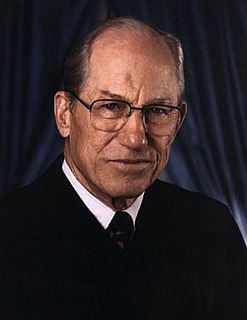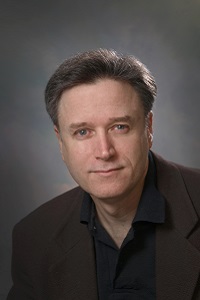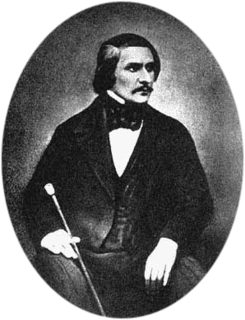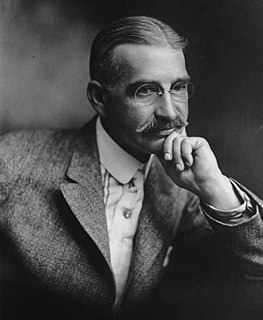A Quote by Niccolo Machiavelli
You know better than I that in a Republic talent is always suspect. A man attains an elevated position only when his mediocrity prevents him from being a threat to others. And for this reason a democracy is never governed by the most competent, but rather by those whose insignificance will not jeopardize anyone else's self-esteem.
Related Quotes
It is not better that all felony suspects die than that they escape. Where the suspect poses no immediate threat to the officer and no threat to others, the harm resulting from failing to apprehend him does not justify the use of deadly force to do so. It is no doubt unfortunate when a suspect who is in sight escapes, but the fact that the police arrive a little late or are a little slower afoot does not always justify killing the suspect.
A man's sexual choice is the result and the sum of his fundamental convictions.... He will always be attracted to the woman who reflects his deepest vision of himself, the woman whose surrender permits him to experience a sense of self-esteem. The man who is proudly certain of his own value, will want the highest type of woman he can find, the woman he admires, the strongest, the hardest to conquer--because only the possession of a heroine will give him the sense of an achievement.
There must be only three supreme values which govern a person's life: Reason, Purpose, and Self-esteem. Reason, as his only tool of knowledge--Purpose, as his choice of the happiness which that tool must proceed to achieve--Self-esteem, as his inviolate certainty that his mind is competent to think and his person is worthy of happiness, which means: is worthy of living. These three values imply and require all of man's virtues, and all his virtues pertain to the relation of existence and consciousness: rationality, independence, integrity, honesty, justice, productiveness, pride.
Of one man in especial, beyond anyone else, the citizens of a republic should beware, and that is of the man who appeals to them to support him on the ground that he is hostile to other citizens of the republic, that he will secure for those who elect him, in one shape or another, profit at the expense of other citizens of the republic. It makes no difference whether he appeals to class hatred or class interest, to religious or anti-religious prejudice. The man who makes such an appeal should always be presumed to make it for the sake of furthering his own interest.
Even a beautiful God-scripted love story can never satisfy the way Jesus does...And until we are able to truly make Him our first love...we will never know the fullness of Him who fills all in all. We will always be looking to a mere man to meet the desires of our heart, rather than to the One who created us, who knows us better than we know ourselves, and who gave His very life's blood to rescue us.
A man never is happy, but spends his whole life in striving after something which he thinks will make him so; he seldom attains his goal, and when he does, it is only to be disappointed; he is mostly shipwrecked in the end, and comes into harbor with mast and rigging gone. And then, it is all one whether he has been happy or miserable; for his life was never anything more than a present moment always vanishing; and now it is over.
An impractical man--which he not only seems to be, but really is--will always be unreliable and unpredictable in his dealings with others. He will engage in actions that mean something else to him than to others, but he is at peace with himself about everything as long as he can make it all come together in a fine idea.
The abbot told me once that lying was a betrayal to one's self. It's evidence of self-loathing. You see, when you are so ashamed of your actions, thoughts, or intentions, you lie to hide it rather than accept yourself for who you really are. The idea of how others see you becomes more important than the reality of you. It's like when a man would rather die than be thought of as a coward. His life is not as important to him as his reputation. In the end, who is the braver? The man who dies rather than be thought of as a coward or the man who lives willing to face who he really is?
There was a small boy on crutches. I do not know his name, and I suspect I never will. But I will never forget his face, his smile, his sorrow. He is one of the millions robbed of hope and dignity by charlatans discussed in this book. Wherever and whoever he is, I apologize to him for not having been able to protect him from such an experience. I humbly dedicate this book to him and to the many others who have suffered because the rest of us began caring too late.
He who has talent in him must be purer in soul than anyone else. Another will be forgiven much, but to him it will not be forgiven. A man who leaves the house in bright, festive clothes needs only one drop of mud splashed from under a wheel, and people all surround him, point their fingers at him, and talk about his slovenliness, while the same people ignore many spots on other passers-by who are wearing everyday clothes. For on everyday clothes the spots do not show.
It is man's intrinsic and irreducible self-responsibility to humanize himself, to exercise his entire range of rational and moral resources to raise his mode of being and seeing and acting above not just that of animals, but also above that of the majority of subhuman (never to be self-realized) humans who will never draw themselves into a self-punishing position of focal self-diagnosis and self-accountability.
A curious thing about Ugu the Shoemaker was that he didn't suspect in the least that he was wicked. He wanted to be powerful and great, and he hoped to make himself master of all the Land of Oz that he might compel everyone in that fairy country to obey him, His ambition blinded him to the rights of others, and he imagined anyone else would act just as he did if anyone else happened to be as clever as himself.
Every form has its own meaning. Every man creates his meaning and form and goal. Why is it so important - what others have done? Why does it become sacred by the mere fact of not being your own? Why is anyone and everyone right - so long as it's not yourself? Why does the number of those others take the place of truth? Why is truth made a mere matter of arithmetic - and only of addition at that? Why is everything twisted out of all sense to fit everything else? There must be some reason. I don't know. I've never known it. I'd like to understand.



































